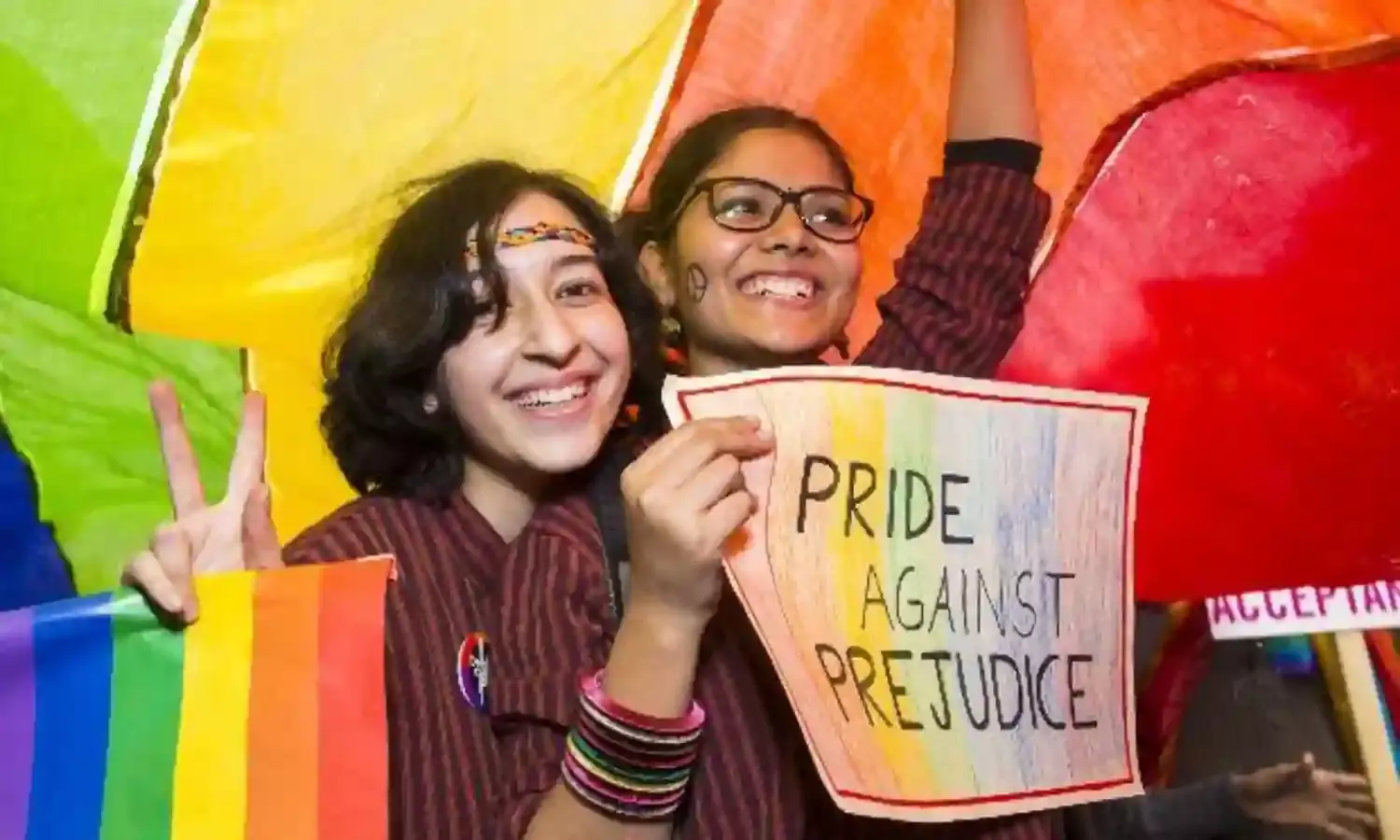Supreme Court Decriminalises Section 377: 'I Am What I Am, So Take Me As I Am'
Major victory say petitioners

NEW DELHI: A five-judge constitution bench led by Chief Justice India Dipak Misra and comprising Justices Rohinton F. Nariman, A.M. Khanwilkar, D.Y. Chandrachud and Indu Malhotra today delivered four separate but concurring judgments reading down Section 377 of the Indian Penal Code.
The judgment comes five years after the apex court’s ruling in Koushal v. Naz Foundation which upheld Section 377 and declared that LGBT persons are only “a miniscule fraction of the country’s population” (sic) undeserving of constitutional protections.
CJI Misra was first judge to read from his verdict co-authored with Justice Khanwilkar. “Denial of self expression is inviting death,” he said, adding that “Societal morality cannot prevail over constitutional morality. Societal morality cannot overturn the fundamental rights of even a single person.” Sexual orientation is biologically innate. “She or he has no control over who they get attracted to. Any repression will be a violation of free expression.”
The judgment further states: “The LGBTQ community needs a rainbow of hope for the sake of humanity. They should be allowed to live with dignity and without pretence. This is their journey to dignity, equality and liberty. It is time to bid adieu to prejudicial perceptions deeply ingrained in social mindset. It is time to empower the LGBTQ community against discrimination. They should be allowed to make their choices.”
Justice Nariman in his verdict said that the ‘Yogyakarta Principles’ signify Article 14 of the Indian Constitution. Homosexuals have a fundamental right to live with dignity and are entitled to be treated as human beings and imbibe the spirit of fraternity.
Justice Chandrachud said, “The tragedy and anguish inflicted by Section 377 should be remedied. Macaulay's legacy exists 68 years after the coming of a liberal Constitution. The human instinct to love has been constrained. Sexual orientation has become a reason for blackmail on the internet.” Paraphrasing Leonard Cohen, he added that “shadows of a receding past control the quest of LGBTQ for fulfilment.”
He continued, “What is the 'order of nature'? The State cannot decide the boundaries between what is permissible or not. Section 377 is based on deep-rooted gender stereotypes. It persecutes people. It is a majoritarian impulse to subjugate a sexual minority to live in silence.”
Justice Indu Malhotra, one of only three women judges in the Supreme Court, said, “History owes the members of the LGBTQ community apologies for past persecution and ignorance of the majority. This section infringed on the right against discrimination under Article 15, and privacy under Article 21. In view of the findings, in so far as consensual sex between adults is criminalized, the article is struck down (under Articles 14, 19, 21). Consent must mean free consent.”
The judgment invited welcoming responses from society. The Citizen spoke to Karan who belongs to the LGBTQ community and works at the Naz Foundation, who said, “It is a very big judgment and a major win for the community. Sexual orientation is natural. We as a community have faced lots of struggle and discrimination in every sphere of our life. We have faced discrimination in schools and colleges, workspaces and at home.
“Hopefully, this decision will help reduce the discrimination against us. Ensuring social justice is a long process and a large part of society needs to be sensitised and made aware about LGBTQ community.”
The Naz Foundation is an NGO working on HIV/AIDS and sexual health issues; it was one of the petitioners against Section 377 in the Delhi High Court in 2001. Eight years on in 2009, the Delhi High Court described Section 377 as a violation of the fundamental rights guaranteed by the Constitution.
This verdict was challenged by various religious and conservative groups which appealed to the Supreme Court against the decision.
In 2013, Supreme Court recriminalised Section 377. A two-judge division bench of Justices G S Singhvi and S J Mukhopadhaya upheld the appeal, stating that the section “does not suffer from the vice of unconstitutionality and the declaration made by the Division Bench of the High Court is legally unsustainable”. They left it to Parliament to “consider the desirability and propriety of deleting Section 377 IPC from the statute book or amend the same”.
The verdict led to strong protests from the LGBTQ community and activists. In February 2016 a three-member Supreme Court bench headed by then Chief Justice T.S. Thakur said that all the curative pleas filed would be reviewed afresh by a five-member constitution bench.
Two important Supreme Court judgments paved the way for today’s landmark judgment on Section 377. The first, known as the NALSA judgment, was delivered in 2014 granting transgenders the right to be called ‘third gender’. Transgender individuals could now seek legal, political and economic rights, and remedies against discrimination.
The second came on August 24 last year when a nine-judge bench unanimously delivered its judgment in Justice K.S. Puttaswamy (Retd.) v. Union of India ruling that the right to privacy was a fundamental right. The judgment put Section 377 in direct opposition to the constitutionally protected fundamental right to privacy. In Puttaswamy the Supreme Court said that sexual orientation is an “essential component of identity" and the rights of LGBTQ population are "real rights founded on sound constitutional doctrine".
The first of today’s verdicts, in Navtej Singh Johar and others v. Union of India, opens: “It was not for nothing that Johann Wolfgang von Goethe said, ‘I am what I am, so take me as I am.’”



